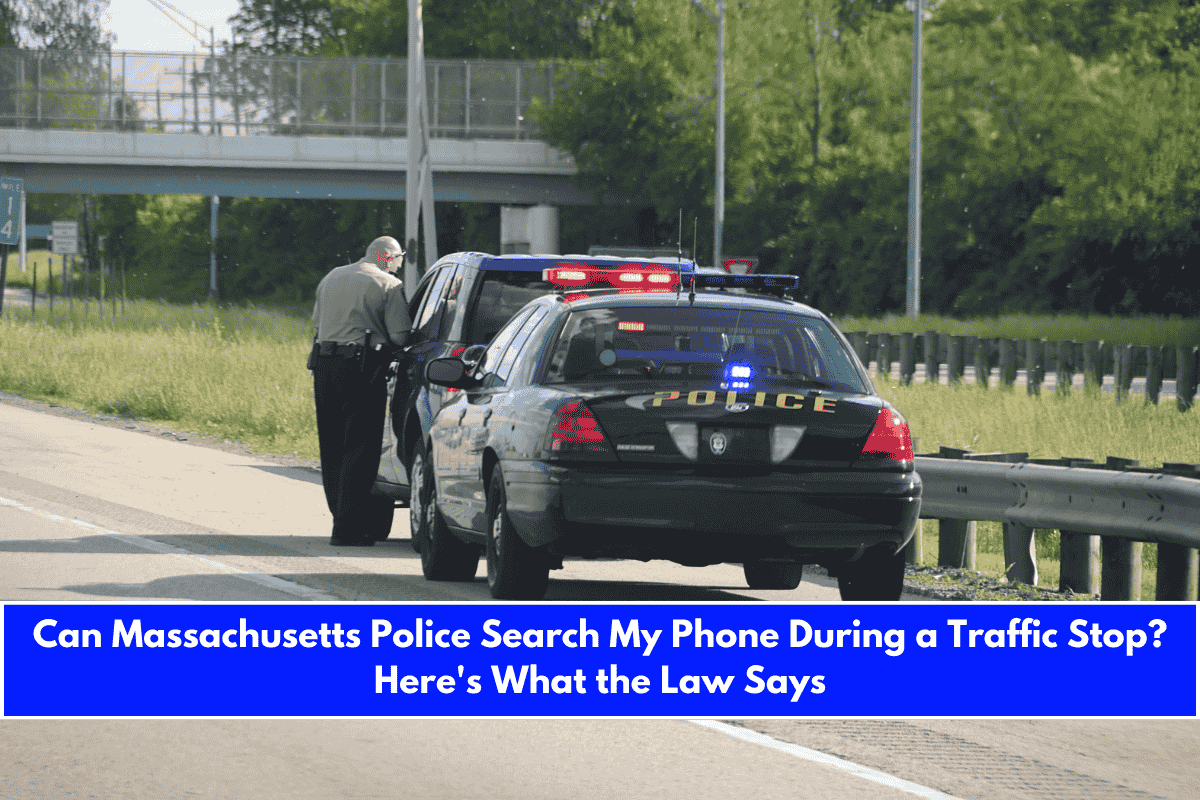Massachusetts police cannot search your phone during a traffic stop without your consent or a valid search warrant. Your phone is protected by the Fourth Amendment, which guards against unreasonable searches and seizures.
Courts recognize that cell phones contain highly personal information, and searching them is not the same as searching a glove box or backpack.
When Can Police Ask for Your Phone?
- Police Can Ask, But You Can Refuse: Officers may ask to see or search your phone, but you are not required to hand it over. You only need to provide your driver’s license and registration if requested.
- If You Consent: If you unlock and hand over your phone, you are giving consent, and police may search its contents. Consent must be voluntary, and you can set limits (for example, only allowing access to certain apps or information).
- If You Refuse: Without your consent, police must have probable cause and obtain a search warrant from a judge to search your phone.
Exceptions: Probable Cause and Exigent Circumstances
- Probable Cause: If police have strong evidence your phone contains proof of a crime (such as texting while driving or more serious offenses), they may seek a warrant. The warrant must be supported by probable cause and specify what they are searching for.
- Exigent Circumstances: In rare, urgent situations (such as immediate danger or risk of evidence destruction), police may conduct a search without a warrant, but this is strictly limited and subject to later court review.
Distracted Driving Stops: What About Phone Use?
Massachusetts’ hands-free law prohibits holding or using your phone while driving, except in hands-free mode. If you are stopped for suspected distracted driving:
- Police may ask if you were using your phone, but you do not have to answer beyond basic identification.
- They cannot search your phone for evidence of use without your consent or a warrant.
- You may receive a citation based on the officer’s observation, but not from a phone search unless you consent.
Your Rights During a Traffic Stop
- Right to Remain Silent: You only need to provide identification and registration. You do not have to answer questions about your phone use.
- Right to Refuse a Search: You can clearly state, “I do not consent to a search of my phone.” This does not imply guilt.
- Right to Legal Counsel: If the situation escalates to an arrest, you have the right to an attorney.
Summary Table: Police Phone Searches in Massachusetts
| Scenario | Can Police Search Your Phone? |
|---|---|
| You give clear, voluntary consent | Yes, to the extent of your consent |
| You refuse consent | No, unless they obtain a warrant |
| Police have a search warrant | Yes |
| Officer suspects distracted driving | No, unless you consent or they get a warrant |
| Exigent circumstances (rare) | Possibly, but strictly limited |
Massachusetts police cannot search your phone during a traffic stop unless you give voluntary consent or they obtain a warrant backed by probable cause. You have the right to refuse a search, and exercising this right does not imply guilt.
For distracted driving stops, officers may issue citations based on observation, but cannot search your phone for evidence without your permission or a warrant.
Sources:
- https://www.aclu.org/know-your-rights/stopped-by-police
- https://www.aclum.org/sites/default/files/id_to_police_-_draft_know_your_rights_-_updated_march_23.pdf
- https://www.davidyannetti.com/articles/do-i-have-to-give-police-access-to-my-phone-during-a-traffic-stop/
- https://www.waysideyouth.org/2024/11/19/educate-yourself-others-on-your-legal-rights-during-police-stops-in-massachusetts/
- https://anthonyricciolaw.com/general-legal-advice/your-rights-during-a-police-stop-in-boston/











Leave a Reply